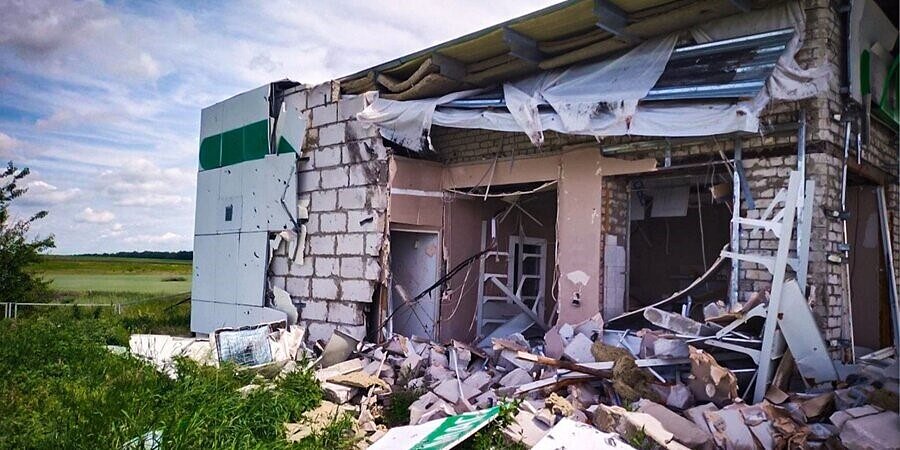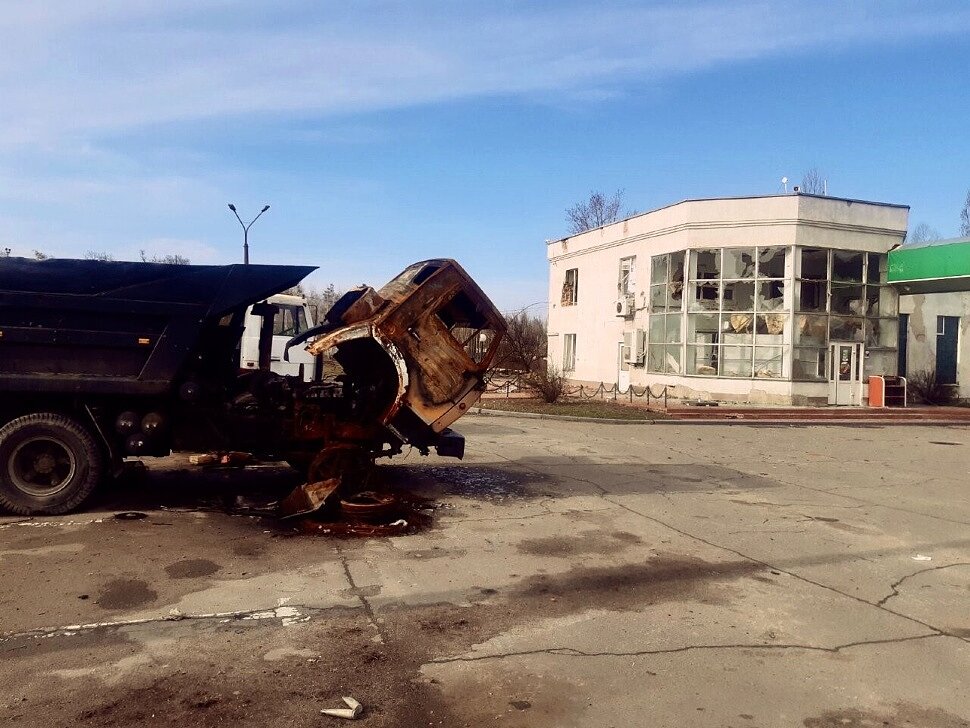A full-scale invasion has been going on for almost 15 months. Ukraine is defending its independence. The Armed Forces of Ukraine are defending its territorial integrity with dignity, and transparent businesses are responding to the challenges of the wartime economy by investing, creating working places and paying taxes to the state budget. Having suffered losses from the hostilities, Ukrainian businesses continue to operate and support the state.

However, businesses need conditions for functioning: simple and accessible rules that are not regulated by numerous legislative norms, simplified bureaucratic procedures and permits.
Since the start of the full-scale invasion, Ukraine has had a positive experience of government and business cooperation. In April 2022, the government and oil traders overcame a number of obstacles in a matter of weeks in close cooperation and complete understanding of the issues. The government has created the conditions for a quick resolution of problems and the business ensured the prompt import of fuel from abroad. The joint efforts have gradually saturated the market with fuel.
This is a vivid example of effective support and provision of business conditions. Today, there are a lot of challenges that companies face on a daily basis. Frequent changes and unclear legislative norms often force businesses to defend their rights in court. However, most entrepreneurs know from experience that litigation drags lasts for years, creating additional pressure on operations and slowing down development.
Stability and predictability, confidence and guarantees are the main principles of development. These fairly simple conditions encourage foreign investments and private capital to open new markets, expand or scale up their businesses and, as a result, pay taxes to the state budget.
Basing on the European business experience and applying the best practices of Austrian companies, AMIC UKRAINE CFI is a unique enterprise in the Ukrainian fuel market whose assets and operational business concentrated in one legal entity. The company has never created another legal entities, has never distributed assets and operations, as is often the case in Ukraine, and therefore AMIC Ukraine`s business is absolutely transparent where taxes cannot be "diluted." Thus, according to the State Tax Service of Ukraine, AMIC UKRAINE was one of the five largest taxpayers per liter of fuel sold in 2020. For the result of the first nine months of 2021 it was among the top 5 largest taxpayers in the fuel market, and in September 2022 it was recognized for its exemplary fiscal behavior for increasing the tax burden during the war.
Despite the systematic and transparent approach, AMIC Ukraine often faces the practice of interpretation of legislation by state authorities at their own discretion and a “formal” approach to the legal norms, the failure to comply with which entails higher fines than for non-payment of taxes. Regardless of the military actions and economic problems, AMIC Ukraine CFI makes a lot of efforts to save working places and increase taxes, but it has an incident at the petrol station in Kiev when these efforts cost a multimillion fine for the Company. The incident at the petrol station, destroyed by a missile attack by the aggressor country, demonstrates the daily struggle of business in Ukrainian reality. The almost complete destruction of the petrol station's building and equipment, including the cash register, stopped the operation of it. Despite the losses and difficulties, the company, following the government's policy of rapid reconstruction, restored the facility and put it back into operation. After the new equipment was installed, the cash register was registered with the State Tax Service, but its number was not updated in the annex to the license for fuel trade.

Given martial law, the Cabinet of Ministers suspended the deadlines for providing administrative services and issuing documents. However, despite the legislative decisions, the state controlling authorities have not adapted their procedures to the realities of the business environment in wartime.
Some tax norms that should regulate the turnover of fuel have not been regulated at the legislative level for several years. The Law on the Circulation of Excitable Goods only defines the procedure for obtaining licenses for fuel trade, but does not contain any information on the procedure for filling out the license application and does not regulate the actions of the company in case of changes in the information. There is also no clear legal procedure for updating the data in the annex to the fuel trade license and even the form of the license with the annex has not been approved. The existing forms used from 2019 are exclusively of the recommendation nature from the SFS.
Complex administration does not lead to proper control over tax payments, but rather is used as a punitive method of controlling companies.
Despite the fact that the taxes were paid on time and were no violations, the most severe sanctions were imposed—200% of the value of fuel sold through a cash register – based on the late updating of data in the annex to the fuel trading license, which was used by the state tax authorities purely as a punitive measure. When such sanctions are applied, the amount of the fine is usually tens of millions of hryvnias. In the case of AMIC UKRAINE, the penalty is not a consequence of tax evasion, but a punishment due to the bureaucratic negligence of a petrol station employee during the war. For European countries, such a practice is incomprehensible, as their state tax authorities prevent violations of the law and help taxpayers fulfill their obligations in a timely manner. In Ukraine, the taxpayer is forced to bear the burden of punishment due to imperfect legislation and pay a fine that is much higher than the cost of the petrol station itself. The disproportionality of punishment in such situations is striking and contradicting the principles of law.
Ukrainian law recognizes the principle of proportionality, where the liability must correspond to the offense. This principle is enshrined in Ukraine's international treaties and is important on the country's path to joining the European community.
Examples include the situation with “specific” and unjustified application of the legal norms, when statistical forms are interpreted by inspectors as primary accounting documents, resulting in fines of 100% of the sold fuel. For example, the “recognition” as a primary accounting document of a statistical journal on the acceptance and release of fuel at petrol stations, approved back in 2008, before the digitalization of operational business processes and electronic tax administration, and not enshrined in any regulatory acts, except for the industry-specific Instruction on the procedure for acceptance, transportation, storage, release, and accounting of oil and oil products. When checking conformity of the quantity of the fuel indicated in the primary accountant documents, the absence of a journal for the previous reporting year due to its transfer to the archive becomes the basis for the state tax authorities to conclude that the fuel were not recorded at all and to impose a fine of UAH 11.2 million. Considering such cases, the courts always cancel the tax authorities' conclusions on fines. Unfortunately, the business can prove its innocence only through litigation.
Ukrainian businesses have already demonstrated resilience and invincibility, reflecting the spirit of the nation. Despite the situation in the country, businesses not only support the Armed Forces of Ukraine, but also fight for justice in international institutions, trying to bring the aggressor to justice. AMIC UKRAINE, as a business entity, also filed a lawsuit with the ECHR to recognize russia's aggressive and destructive actions as a result of which the Company`s assets were seized, looted and destroyed. The claim confirmed the restriction of access to assets by the List of territories where military operations are underway or were conducted or territories temporarily occupied by the russian federation approved by the Ministry of Integration. As is often the case in business, the aforementioned List of Territories has gone through a difficult path of “formation”. In March 2022, Law No. 2120-IX was adopted, which stipulates that in territories where hostilities are taking place or in territories under temporary occupation no land payment is charged for the application of tax benefits. The list of territories was to be determined by the Cabinet of Ministers, but only in December 2022 was the relevant resolution adopted.
The entire Ukrainian business community has been waiting for a clear regulation during a year, and the use of the List of Territories has been subject to ambiguous interpretations by various government agencies. This led to a chaotic application of legal norms. Business appeals and calls to the authorities yielded results only in April 2023, with retroactive application of the norm from January 2023, violating the basic principles for business, which are stability and timeliness of legislation.
Complex administration does not lead to proper control over tax payments, but rather is used as a punitive method of businesses control. A numerous bureaucratic journals, forms and permits create risks of significant penalties due to the difficulty of simultaneously controlling different types of documents. This does not encourage business development and scaling, but only directs companies to control and comply with bureaucratic procedures.
Moving away from harsh punitive approaches to dealing with transparent business will help attract foreign investments, as protecting the legitimate rights and interests of investors will not only increase the flow of private capital, but also allow Ukraine to integrate into the European community in a shorter time.
